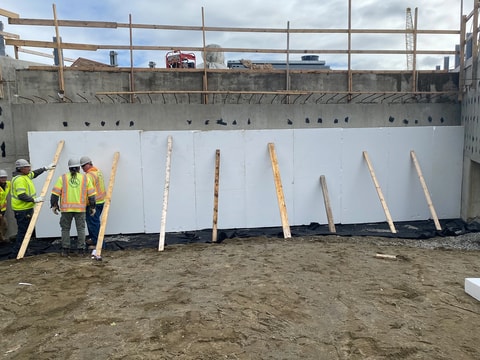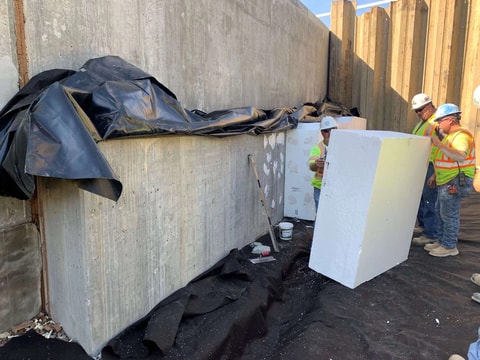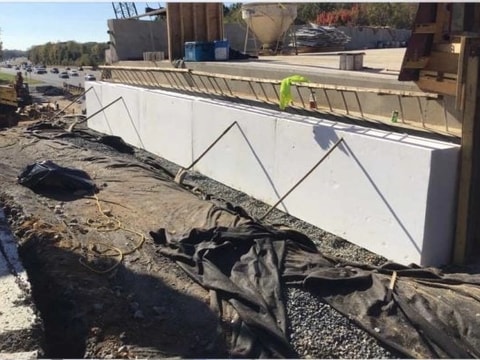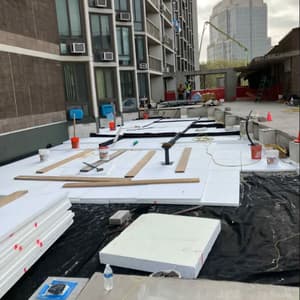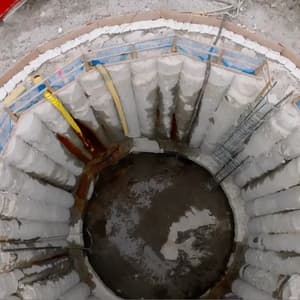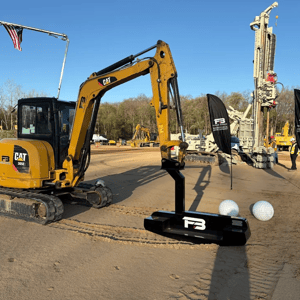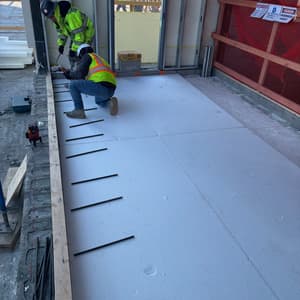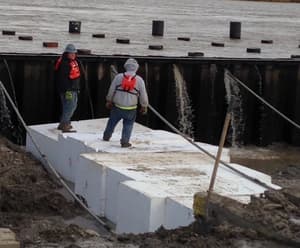Elasticized polystyrene or elastic inclusion as it is sometimes called is a type of EPS geofoam with unique properties. All other EPS geofoam products are engineered to withstand specific loads with little or no compression, making them ideal as a lightweight void fill for many commercial, industrial and civil construction applications.
Elasticized polystyrene is engineered to compress when pressure is applied and then expand back when the pressure is released. Most commonly used in bridge and retaining wall construction, elasticized polystyrene panels are installed vertically between the structure and the backfill. In areas subject to freezing, the underlying soil expands and contracts as the freeze-thaw cycles occur. Over time, settlement occurs at the point where the soil, compacted gravel and pavement meet the concrete abutment of the bridge. This creates a void under the pavement and eventually a dip in the roadway, creating that bump you feel as you enter and exit a bridge that has been in place for several years.
Elasticized Polystyrene is manufactured to the following
specifications:
-
Compression strength of 720 psf (5.0 psi) +/- 60 psf (0.42 psi) at 10% strain, as prescribed in Test Method ASTM D1621.
-
Maximum water absorption of 3% by volume, as prescribed in Test Method ASTM C272.
-
Dimensional tolerances of +/-1/8" in length, width, and thickness.
-
The EPS is elasticized, with a linear-elastic stress strain behavior up to 10% strain and linear proportional stress-strain behavior up to 30% strain.
-
The EPS contains no chlorofluorocarbons (CFCs), hydro chlorofluorocarbons (HCFCs) hydro fluorocarbons (HFCs) or formaldehyde. It is chemically and biologically inert when in contact with acidic and alkaline soils.
-
The EPS is treated with an insecticide to provide resistance to insect attack.
-
The EPS will withstand temperature variations from -68° F to 140° F without deforming and will maintain its original dimensions and placement without chipping, spalling, or cracking. The material will not deteriorate because of contact with sodium chloride, calcium chloride, mild alkalis and acids, or other ice control materials.
-
The EPS contains a flame-retardant additive.
Test Data is available upon request.
